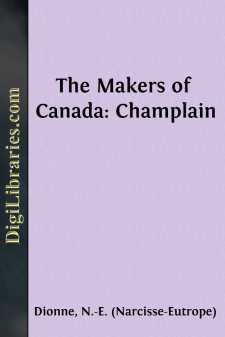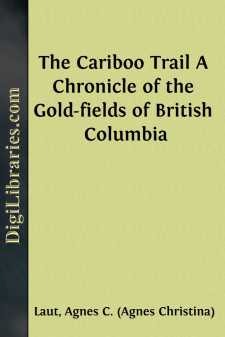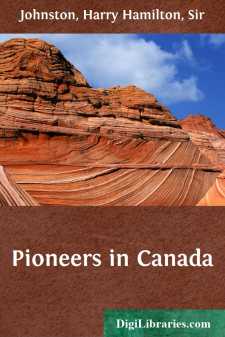History
- Africa 30
- Americas (North Central South West Indies) 50
- Ancient 68
- Asia 58
- Australia & New Zealand 8
- Canada
- Caribbean & West Indies 1
- Civilization 20
- Eastern Europe 12
- Europe 310
- Expeditions & Discoveries 60
- General 77
- Historical Geography 1
- Jewish 9
- Latin America 3
- Medieval 8
- Middle East 13
- Military 248
- Revolutionary 8
- Study & Teaching 5
- United States 353
- Western Europe 56
- World 13
Canada Books
Sort by:
DURHAM THE DICTATOR And let him be dictatorFor six months and no more. The curious sightseer in modern Toronto, conducted through the well-kept, endless avenues of handsome dwellings which are that city's pride, might be surprised to learn that at the northern end of the street which cuts the city in two halves, east and west, bands of armed Canadians met in battle less than a century ago. If he...
more...
CHAPTER I CANADA IN 1672 The Canada to which Frontenac came in 1672 was no longer the infant colony it had been when Richelieu founded the Company of One Hundred Associates. Through the efforts of Louis XIV and Colbert it had assumed the form of an organized province. [Footnote: See The Great Intendant in this Series.] Though its inhabitants numbered less than seven thousand, the institutions under...
more...
by:
Robert Sellar
While my mother was a servant in Glasgow she married a soldier. I have only a faint remembrance of my father, of a tall man in a red coat coming to see us in the afternoons and tossing me up and down to the ceiling. I was in my fourth year when his regiment was hurried to Belgium to fight Bonaparte. One day there rose a shouting in the streets, it was news of a great victory, the battle of Waterloo. At...
more...
INTRODUCTION AMONG the numerous works on Canada that have been published within the last ten years, with emigration for their leading theme, there are few, if any, that give information regarding the domestic economy of a settler's life, sufficiently minute to prove a faithful guide to the person on whose responsibility the whole comfort of a family depends— the mistress, whose department it is...
more...
CHAPTER I CHAMPLAIN'S FIRST VOYAGE TO AMERICA Samuel Champlain, the issue of the marriage of Antoine Champlain and Marguerite Le Roy, was born at Brouage, now Hiers Brouage, a small village in the province of Saintonge, France, in the year 1570, or according to the Biographie Saintongeoise in 1567. His parents belonged to the Catholic religion, as their first names would seem to indicate. When...
more...
by:
Charles Roger
CHAPTER I. There have been many attempts to discover a northwest passage to the East Indies or China. Some of these attempts have been disastrous, but none fruitless. They have all led to other discoveries of scarcely inferior importance, and so recently as within the past twelve months the discovery of a passage from the Atlantic to the Pacific Oceans has been made. It was in the attempt to find a new...
more...
CHAPTER I THE FOUNDERS OF ACADIA The name Acadia, [Footnote: The origin of the name is uncertain. By some authorities it is supposed to be derived from the Micmac algaty, signifying a camp or settlement. Others have traced it to the Micmac akade, meaning a place where something abounds. Thus, Sunakade (Shunacadie, C. B.), the cranberry place; Seguboon-akade (Shubenacadie), the place of the potato, etc....
more...
CHAPTER I EARLY CAREER The Canadian people have had a varied experience in governors appointed by the imperial state. At the very commencement of British rule they were so fortunate as to find at the head of affairs Sir Guy Carleton—afterwards Lord Dorchester—who saved the country during the American revolution by his military genius, and also proved himself an able civil governor in his relations...
more...
THE 'ARGONAUTS' Early in 1849 the sleepy quiet of Victoria, Vancouver Island, was disturbed by the arrival of straggling groups of ragged nondescript wanderers, who were neither trappers nor settlers. They carried blanket packs on their backs and leather bags belted securely round the waist close to their pistols. They did not wear moccasins after the fashion of trappers, but heavy,...
more...
CHAPTER I The White Man's Discovery of North America So far as our knowledge goes, it is almost a matter of certainty that Man originated in the Old World—in Asia possibly. Long after this wonderful event in the Earth's history, when the human species was spread over a good deal of Asia, Europe, and Africa, migration to the American continents began in attempts to find new feeding grounds...
more...











